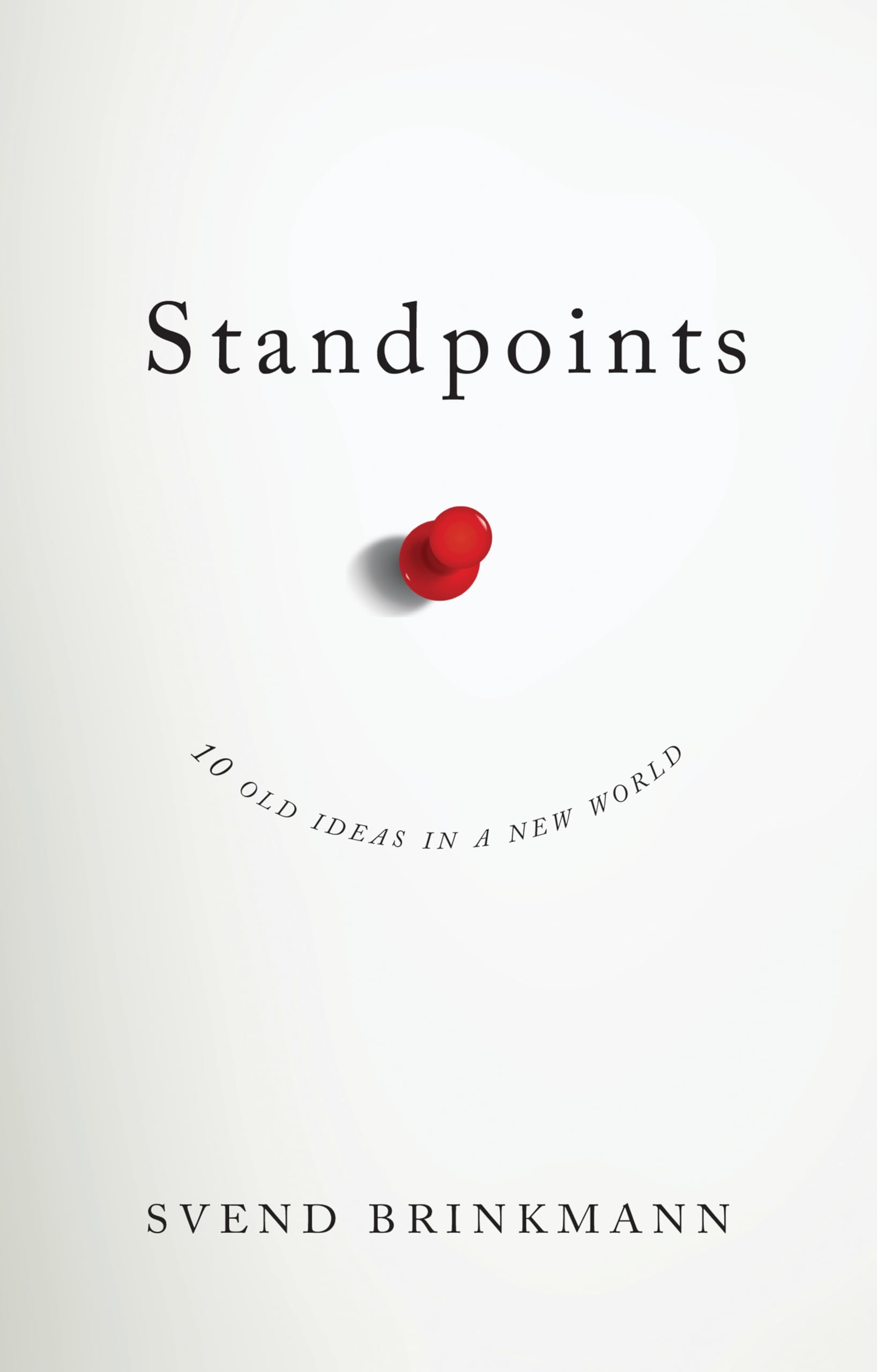Customer Services
Copyright © 2025 Desertcart Holdings Limited


Standpoints: 10 Old Ideas In a New World
J**A
A great concise read that can give or remind one of purpose.
This is a nice, concise book that can give the reader a compass, which can come in handy to both the novice and experienced. For the novice, easily digestible chapters. Rich with references to other books and giants of philosophy that a reader can continue to explore. For the experienced, Brinkman gives a fresh perspective while reinforcing the reasons why famous philosophers’ ideas have persisted.
S**S
More Quality Work from Brinkmann But I Wish He Would Stand on His Own Feet
I get the feeling that Brinkmann will become a legend if he ever stops quoting other philosophers and actually attempts to write something original using the full power of his intellect. Alas, this is another love letter to other philosophers and really, would probably be best thought of as a tribute to those embraced the ideals of antiquity. Except...There is a HEAVY message in here about the danger of Instrumentalisation (I the word is a mouthful I know). Basically, if you think of EVERYTHING as a means to an end (except the means itself, which you worship as a God) you push the world toward chaos and destruction. So the relentless fight to optimize, increase efficiency, and consume the world must be countered with appreciation for things that are completely useless to accomplish anything. To simply even further, Brinkmann is advocating a quest for MEANING over a quest for SELF-FULFILLMENT. And I'm all for that.This book isn't as well written (translated?) as "The Joy of Missing Out" but it still has some profound things to say. The "Standpoints" the Brinkmann refers to are his interpretation of the cornerstones of the meaning of life (or things that help you to find it) and so are worth your attention and even meditation. And if you didn't take Philosophy in College (alas, I did not) it's actually a good basic education on who the great philosophers were and what they ACTUALLY taught (as opposed to the mistaken ideas of pop culture).Brinkmann keeps falling into the same trap in his writing though. You'll be reading about his topic, and he gets so lost in tangents that you can read the entire chapter and have no idea what he was getting at. Several of his ideals are lost in the woods (maybe even bogged down in the mud) and you are learning more about the love life of Nazi-loving moral hypocrites than whatever point it is Brinkmann is trying to get across.There ARE good ideas here. Even profound ones. Quite frankly this is the heaviest 150 pages I've ever read. But Brinkmann HAS to get himself a better editor. Someone who read a chapter and says "Re-write it from scratch. ONE paragraph about each philosopher and state IN PLAIN ENGLISH...WHAT THE HECK THE IDEAL ACTUALLY IS!!" Because I'm no fool, but I certainly have no idea what he talking about on several occasions.The real take-away here was: 1. The ideals I've had since a child are embraced by a philosopher on the other side of the world so I can stop feeling like a freak. 2. I need to read some of the books Brinkmann cites as sources. 3. Brinkmann needs to write a book about what HE thinks, using the world and logic to prove his points, not dead philosophers. THEN he is going to write something really Earth-shaking. Maybe he should lock himself up in a tower for ten years to write it and not take any books by other philosophers with him.
B**C
The Right Idea Just Not the Right Examples
The overall approach in this book is right on target. The author is a critic of the self-help craze and this is his second book on the topic. The main idea in this book is that there are some things that have intrinsic value and we should practice them for their own sake and not as a means to some other end. I think this is exactly right but I don't necessarily agree with the 10 chapters/practices that the author forms his book around. All of these are good things that we should do, but I don't think they're the 10 I would've selected. To the author' grip 40 points about five minutes ago s credit in his epilogue he admits the others may choose differently. The 10 choices the author made just didn't grab me as compelling. However the point of the book is exactly right I believe and there are valuable insights in each chapter. This is a good book not a great book and it's definitely worth reading.
A**R
A different way of looking at some central ideas within a modern context.
If you're an armchair philosopher this might float your boat. I found it fairly straightforward, but not compelling.I gave it four stars because the ideas are good fodder for thought and they are each succinctly presented.The writing style is a bit dry, but lucid and readable. (Far more so than my trying to make sense of Kierkargaard as an undergrad many moons ago.)
D**
Satirical self help
The other two reviewers missed the satirical approach of this book. It’s written as a self help book but points out the downside of following old platitudes that have become meaningless.
A**R
"Stand point "- Great Ideas
LOve the ideas in this book a easy yet perfound read.
Trustpilot
3 days ago
1 month ago